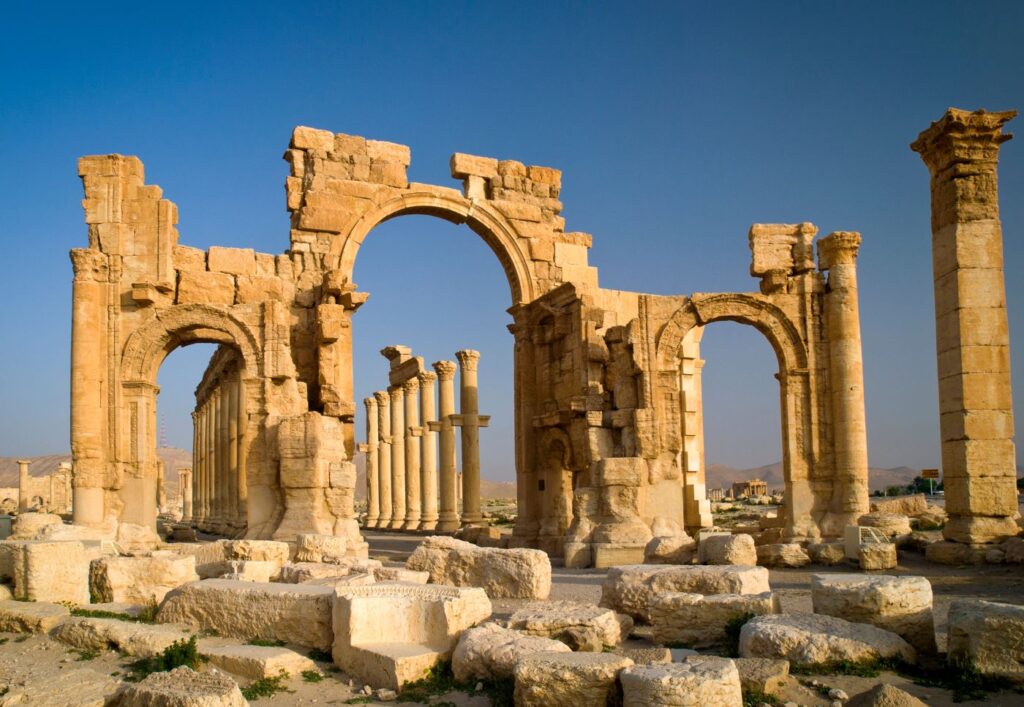In May of this year, the National Assessment of Educational Progress (NAEP) reported a significant decline in eighth graders’ test scores in both history and civics. These scores were the lowest recorded since this format began in the 1990s. The numbers are jarring. Only 13 percent met the “proficient” standard in history, with only 20 percent reaching proficiency in civics. A full four out of ten students failed to meet the lowest level in history, two steps below proficient.
Multiple commentators rushed to explain these significant declines, from COVID policies and online instruction to a lack of funding and tests that fail to gauge understanding appropriately. Regardless of the cause, the numbers grab people’s attention. The public seems to understand that our young people have lost an appreciation for the nation’s history, institutions, and traditions. The loss of knowledge may come from a general devaluing of the American tradition, a failure to recognize its positive contributions. Unfortunately, from that ignorance flow two further harmful tendencies: a scornful rejection of the American past as hopelessly corrupted and a willingness to innovate radically in public institutions, rather than reforming in harmony with American constitutional, political, and cultural ideals.
These are vital concerns since they speak to what binds the nation together, what will be praised and rewarded in public, and what will be passed on to the next generation. They are particularly pressing for schools and universities, the cultural institutions that have the capacity—and hence the duty—of transmitting a civic culture. Even if those bodies disclaim any intention of doing so, they will still teach their charges some perspective on the American past and present; they will still be forming them.
Formation Challenges in the Churches
Start your day with Public Discourse
Sign up and get our daily essays sent straight to your inbox.These national concerns have been expressed before, but for Christians of all traditions, there exists an added layer of responsibility. Augustine helpfully reminds us that the faithful live in and have vocations to two cities—the City of Man and the City of God, the secular and the sacred. In short, believers have duties to form the minds of hearts of the next generation for two settings, both this world and the next.
This could prompt us to ask how “civic” formation is going in our churches. Looking at the American church landscape, we can see parallel problems to our civic problems. First: ignorance. How much Church history does the average layperson know? What stories, movements, writings, leaders—even saints—shape their religious imagination? Second: scorn. Not knowing much about the history of the Church, how many people are willing to dismiss its past as naïve, corrupt, burdened by crime and the sins our contemporaries can see and condemn clearly? If that is the case, such a backwards past has little to teach the present. There is consequently no valuing of a Great Tradition because tradition is a dead hand of the past, rather than a living chorus pointing to truths beyond our temporal horizons. And third: innovation. If the Christian past has little weight, then it has very little it can teach us about what we might do going forward. Instead, pragmatism—“what works”—seems a better marker, and that can be measured by putting people in seats or counting downloads.
The City of Man and the City of God are not the same. They have different compositions, different loves, and different ends. Yet, as communities of humans, they share some characteristics in parallel. In particular, each is shaped by its memories. Memory is tied up with identity—a point Augustine made in his Confessions. The great evil of amnesia is the loss of a sense of self, formed by situating one’s individual consciousness in relation to others and in the memories of interactions with others. Cultural amnesia can be just as dangerous. Memory must be nurtured and renewed. The challenge to keep the flame of memory bright was captured by the observation of Czech novelist Milan Kundera—that the struggle for liberty and against tyranny is “the struggle of memory against forgetting.” Shaping the two cities in which faithful believers find themselves thus requires attention to a history that supports memory.
Augustine helpfully reminds us that the faithful live in and have vocations to two cities—the City of Man and the City of God, the secular and the sacred. In short, believers have duties to form the minds of hearts of the next generation for two settings, both this world and the next.
Strategies for Civic Formation
In the face of these challenges, we should strive to do better in producing careful civic formation—for ourselves and the next generation, for not one but two cities. The approach in both realms should be similar. Knowledge should both deepen reflection and reorient the affections, and our strategies should expose students to as much of the tradition involved as possible.
In our political and civic educational endeavors, students need to lay a foundation of basic knowledge. Information is essential for subsequent analysis and interpretation. Colorful stories are insufficient on their own, but they are important, to demonstrate that the American story is not dull and shouldn’t be taught in the droning voice of Ferris Bueller’s teacher, trying to make a meaningless point about the Smoot-Hawley tariff. Understanding basic information is a first—albeit vital—step, but data only make sense when connected to larger themes. Further, this information must be true and honest, acknowledging national shortcomings. Not only will a whitewashed history lack interest, but a quick Google search will puncture it.
The interpretation of that basic information is what produces historical understanding. Further, the ongoing engagement with such reflection can generate habits of mind with long-term benefits. Historical thinking skills are real skills, and they involve weighing competing accounts, organizing information, making sense of information in context, and attending to complexity and change over time.
The formation of students goes beyond disinterested interpretation to push students to see themselves as citizens. Their rights as Americans carry commensurate duties and responsibilities, which include working toward and contributing to a shared common good, rather than fixating on private enjoyment. We live in communities and are not simply collections of atomistic, self-interested individuals. Developing an outward-focused political affection would counter the isolation that Tocqueville warned particularly afflicted democratic societies.
As a historian, I believe the antidote to isolationism is deep and meaningful engagement with the American past, specifically, with primary sources like poetry, songs, novels, and artwork that reflect the American experience. At the higher levels, study should focus on the great debates in American history and the examples of rhetoric and oratory that delineated an ordered American liberty. This type of study makes space for debates and for critics—especially articulate voices who have critiqued American life from within the tradition.
The formation of students goes beyond disinterested interpretation to push students to see themselves as citizens. Their rights as Americans carry commensurate duties and responsibilities, which include working toward and contributing to a shared common good, rather than fixating on private enjoyment.
Strategies for Catechetical Formation
The approach I’m describing finds a parallel strategy in passing along the Great Tradition of the Church’s history. Church history should play an important part in catechesis, the formation of believers at any age, but especially the young.
Starting in a similar way, churches should begin by talking about the Christian past, educating their members on the events and people who enriched Church tradition. This ought to include an accurate hagiography. The stories of saints too often meant an airbrushed account of perfection. But saints did and do exist—even as Christian traditions define them differently—and like us, they have always stood in need of grace.
This type of formation can cultivate a new habit of mind, leading the faithful to situate themselves in a broader context of Christian tradition. Such teaching would better describe the pilgrim Church as sojourners in time, as well as space. It could be furthered by the intentional integration of historical songs and readings in worship services. The Protestant liturgist Robert Webber described this as an “Ancient–Future” mindset in practice. The benefit to the congregation would be to free thinking and practice from the constraints imposed by the modern world or the preference of a single era. It could link generations, demonstrating that the faith is not tied to a certain moment. By demonstrating its adaptability, it would also welcome the young into a community whose horizons are broader than they can comprehend.
The faithful in the past laid down good paths—paths marked out by belief, practice, and heartfelt response. Intellectual formation would develop the capacity to think along with the tradition, a faith once delivered to the saints. Appreciation for that robust structure of belief would caution against either ignorant or willful innovation against it.
The faithful in the past laid down good paths—paths marked out by belief, practice, and heartfelt response. Intellectual formation would develop the capacity to think along with the tradition, a faith once delivered to the saints.
The goal would be to form reflective congregants, thoughtful participants in their spiritual callings. The dispositions to inculcate would include love and gratitude—gratitude for what has been sacrificed in faithful service and love for what went before. Love graciously tells the truth—even when it’s uncomfortable. “Love thy neighbor as thyself” (Mark 12:31) can refer not only to those geographically nearby, but to neighbors dead years, centuries, or even millennia past. Love would lead to an intellectual hospitality, welcoming the voices of spiritual precursors to inform thought and practice. Learning hospitality might even make us more welcoming of other believers in the present.
To accomplish these goals, the method would include deep engagement with the sources of the Christian tradition. We should seek to read everything from the Apostolic Fathers down to faithful writers of the last century, with a preference for reading those “old books” of the faith, a point highlighted by the Anglican C. S. Lewis. If lex orandi, lex credendi, then we ought to pray, too, using the prayers of departed believers, being formed by the same intentions that formed them. Finally, we should sing with the full tradition, drawing on hymnody from Benedictine monks to Luther, Wesley, Watts, and even Crosby—all of whom will challenge us in our understanding of God. A wider knowledge and use of the materials of Church history can better show us the breadth of the expressions of faithful living.
Put together, these parallel approaches aim for the formation of citizens able to serve in two kingdoms. Enlarged knowledge can prepare the next generation for action, for preserving traditions against intellectual, moral, and spiritual decay, and for building cultures for the future.
Image by inigolaitxu and licensed via Adobe Stock. Image resized.














